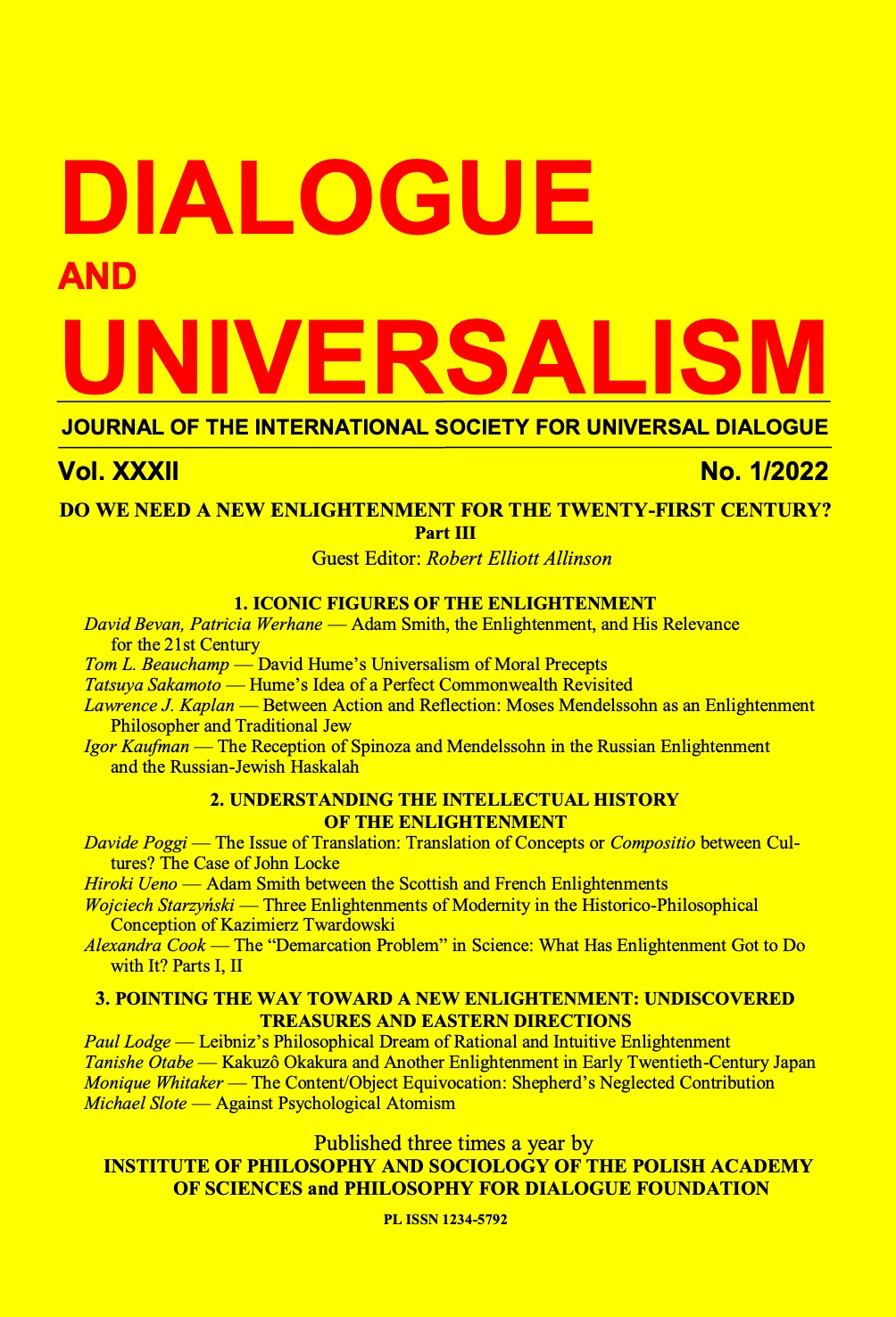SELF-PRESERVATION AND COLONIALITY
SELF-PRESERVATION AND COLONIALITY
Author(s): Jonathan O. Chimakonam, Dorothy N. Oluwagbemi-JacobSubject(s): Philosophy, History of Philosophy, Philosophical Traditions, Special Branches of Philosophy
Published by: Instytut Filozofii i Socjologii Polskiej Akademii Nauk i Fundacja Filozofia na Rzecz Dialogu
Keywords: Rationality; self-preservation; coloniality; colonialism; neo-colonialism; critical thinking
Summary/Abstract: In this paper, we will critically examine the notion of rationality and the disabling instinct of self-preservation that play out in human relationships. That “man is a rational animal,” as Aristotle declared is usually taken for granted in social studies. But whether humans act rationally all the time, and in all circumstances remains questionable. Here, we shall investigate this concern from a decolonial perspective by engaging some contradictions thrown up in the context of coloniality within which a section of humanity dehumanizes the rest. The question then is, how rational is the intellectual program of coloniality? Taking a cue from conversational thinking that places the notion of relationship at the center of decolonial analysis, we argue that coloniality fractures the inter and intra-racial relationships due mainly to the instinct of self-preservation that overwhelms human rationality. What has emerged today as the superior/inferior divide, racialism, classism, internal colonialism, ethnic cleansing, apartheid, xenophobia, and genocide are some of the consequences of warped and uncritical thinking driven by an extreme form of the instinct of self-preservation. We argue that the promotion of critical (higher-order) thinking in addition to ordinary (lower-order) thinking could be crucial in a decolonial program.
Journal: Dialogue and Universalism
- Issue Year: 2023
- Issue No: 1
- Page Range: 111-128
- Page Count: 18
- Language: English

